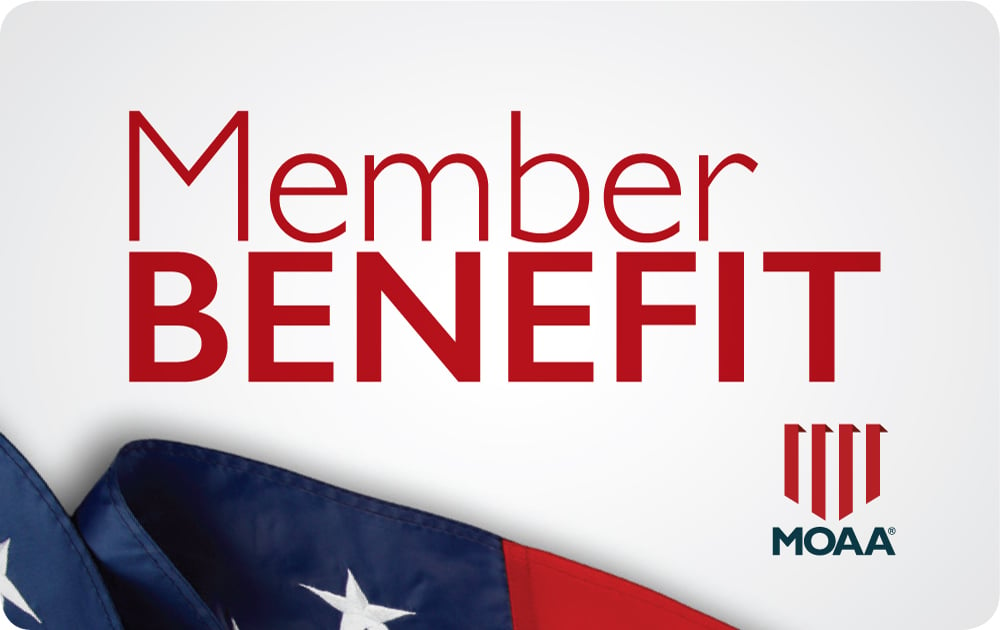 Note: This article first appeared in Transitioning Into Medicare and TRICARE For Life, a publication exclusive to MOAA Premium and Life members. Find more member-exclusive publications at this link, and check out member-exclusive discounts at this link.
Note: This article first appeared in Transitioning Into Medicare and TRICARE For Life, a publication exclusive to MOAA Premium and Life members. Find more member-exclusive publications at this link, and check out member-exclusive discounts at this link.Q. Does TRICARE For Life (TFL) have a benefit for long-term care?
A. No. TFL, like Medicare, has a benefit for skilled care in a skilled-nursing facility, but this should not be confused with long-term care. The TFL benefit applies to care ordered by a physician in a TRICARE-participating facility that provides rehabilitative or skilled-nursing services to help patients recover after a minimum three-day hospital stay.
This type of care is meant to lead to a patient’s full recovery. Custodial care — assistance in activities of daily living such as eating, bathing, dressing, and ambulating — is not covered by Medicare or TFL. For that type of care, consider buying long-term care insurance. You might have to meet certain medical underwriting conditions as determined by the insurance industry.
Q. I have an insurance supplement to Medicare. How will this plan work with TFL?
A. TFL is the supplement to your Medicare plan. This means you do not want any other Medicare supplement plan, known as Medigap plans. Medicare will continue to be your primary payer, but instead of TFL paying second, your Medicare supplemental insurance will become your secondary payer.
If you do decide to purchase another Medicare supplement, however, Medicare will continue to be your primary payer. If there is still an outstanding balance on your claim after Medicare and your supplemental policy have paid, you will be responsible for paying that balance and then filing a claim for reimbursement with TFL. If you have the MOAA Mediplus supplement plan, this plan stops at age 65. It does not work as a supplement for Medicare plans or TFL. Spouses and family members under age 65 can continue the MOAA coverage, as long as they have TRICARE Prime or Select coverage. Call the administrator for your Mediplus plan to coordinate the changes in your status at (800) 247-2192.
MOAA Insurance
Prepare for the unexpected with up to $1 million of coverage, depending on age, through MOAA-endorsed life insurance to help support your loved ones.
Q. How do I confirm that TFL has been “turned on”?
A. There are two ways to check that TFL is active
- After receiving your Medicare insurance card in the mail, schedule an appointment at a local ID card office since you need a new ID card anyway. Show the clerk your Medicare card, and ask them to check the Defense Enrollment Eligibility Reporting System for TFL enrollment.
- Log into the milConnect website and click on “View my health care coverage.”
Q. What is TRICARE Plus?
A. Some military treatment facilities (MTFs) have the capacity to offer a primary-care affiliation program called TRICARE Plus. While enrolled in Medicare Parts A and B, TRICARE Plus allows you to enroll at an MTF for primary care.
Enrolling in TRICARE Plus does not affect your eligibility for TFL. TRICARE Plus is determined on a space available basis, which differs from one MTF to another. Check with your local MTF for more information and to determine whether it offers the program.
Q. I am in the Uniformed Services Family Health Plan (USFHP). How does Medicare/TFL affect me?
A. Beneficiaries enrolled in USFHP before Oct. 1, 2012, can be grandfathered into the program for life. However, USFHP recommends each beneficiary enroll in Medicare Parts A and B at 65, so that if, later in life, you decide to move out of a USFHP coverage area, you will not incur the Medicare premium penalty. USFHP enrollees after Oct. 1, 2012, age out like all TRICARE beneficiaries and must enroll in Medicare to receive TFL.
Q. I get my health care at a VA hospital. Do I need Medicare/TFL?
A. Veterans receiving care through the Veterans Health Administration (VHA) must decide whether they believe they’ll be satisfied with the VHA for the rest of their lives or whether they should enroll in Medicare/TFL at 65 to avoid the premium penalty. For example, if at age 70, they decide the VHA is no longer satisfying their medical needs, a veteran in that situation would incur a 50% Medicare premium penalty to enroll at 70.
Q. I’m turning 65 and plan to continue working, must I enroll in Medicare Parts A and B and draw my Social Security benefits?
A. You may defer enrollment after age 65 without penalty only if you still are working and are covered by your own or your spouse’s employer-sponsored health care plan. You remain ineligible for TRICARE during this period of work after age 65, but your eligibility will be restored once you enroll.
You don’t have to draw Social Security benefits before enrolling in Medicare. The Social Security full retirement age is gradually increasing beyond age 65, based on your year of birth. Although the retirement age is rising, 65 remains the starting date for Medicare eligibility.
Retirees may enroll in Medicare independent of receiving their Social Security benefits. While you may defer receipt of Social Security benefits, you still must enroll in Medicare to retain TRICARE eligibility. Failure to enroll in Medicare upon eligibility results in a penalty of 10% of the cost of Medicare Part B for each year of delayed enrollment.
Q. I’m turning 65 and plan to enroll in Medicare. I want to wait until my full retirement age to collect Social Security benefits. How can I pay my Medicare Part B premiums?
A. If you delay receipt of Social Security benefits after age 65, the Social Security Administration will bill you for Part B premiums. You may pay by personal check, with a credit or debit card, or by setting up an automatic withdrawal option through Medicare Easy Pay.
MOAA Insurance
From long-term care coverage to TRICARE supplements and much more, see what products are best for your personal peace of mind.


